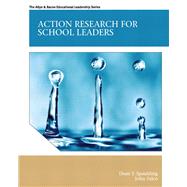About This Book
Action Research for School Leaders
ISBN: 9780131381049
Action Research for School Leaders is an authoritative guide designed for current and future school leaders, building administrators, and action research team members. This book provides a comprehensive approach to action research, equipping educators with the tools and strategies needed to improve educational practices and outcomes.
Who Uses It?
Primarily, this book is used by school leaders, building administrators, and action research team members. It is also valuable for educators and researchers looking to enhance their understanding of action research methods and their application in educational settings.
History and Editions
The first edition of Action Research for School Leaders was published in 2011. This edition has been widely adopted in educational institutions and continues to be a go-to resource for those seeking to implement action research in their schools. The book has been updated to reflect the latest research and best practices in educational leadership.
Author and Other Works
The primary author of this book is Allyn & Bacon, a well-known publisher in the field of educational leadership. While the specific authors of this edition are not detailed in the provided sources, Allyn & Bacon is recognized for producing high-quality educational resources.
Key Features
- Comprehensive Approach: The book provides a detailed exploration of action research methods and their application in educational settings.
- Practical Guidance: It offers actionable steps and strategies for implementing action research in schools.
- Educational Focus: The text is specifically tailored for educators and educational leaders, making it a valuable resource for those looking to improve their practice.
Detailed Information
ISBNs and Formats
- Hardcover: ISBN-13: 9780131381049
- eTextbook: ISBN-13: 9780131381056
- Loose-leaf: ISBN-13: 9780131381063
- Rental Options: Various rental durations available from different retailers
Publication Details
- Publisher: Pearson
- Publication Date: December 27, 2011
- Number of Pages: 184 pages
- Language: English
Other Editions and Formats
While there are no additional editions or formats listed for this specific ISBN, it is essential to note that the publisher, Pearson, often releases updated editions and formats for popular textbooks. For the most accurate and up-to-date information, it is recommended to check directly with the publisher or authorized retailers.
Related ISBNs:
- 9780131381056 (eTextbook)
- 9780131381063 (Loose-leaf)
This detailed information section provides a quick reference for all the available formats and sources for Action Research for School Leaders, making it easier to find and access the book in the preferred format.









